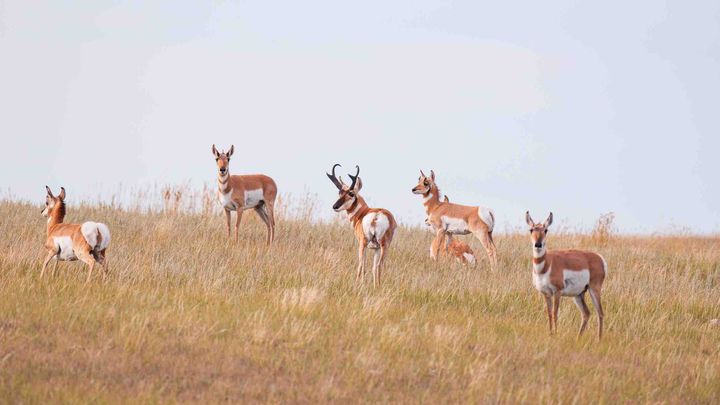Thanks for the free advertising!There are federations for turkeys, non-profits for grouse, for pheasants, for ducks, and NGO's for just about every animal. Rich foundations give lots of money to these orgs. Influencer lobbying then determines how many millions the federal government is going to print for programs.

Help Launch the North American Pronghorn Foundation
Brock Wahl is organizing this fundraiser.
Donation protected
We are raising start up funds for a NEW non-profit conservation organization, the North American Pronghorn Foundation.
This uniquely American animal has gone without direct representation in the conservation community for too long. In a landscape with declining habitat and growing pressure from multiple forms of development, Pronghorn and their habitat cannot wait. Please support us in our efforts to stand this organization up and get moving forward with Pronghorn speed!
Mission Statement:
“The North American Pronghorn Foundation is dedicated to the conservation and enhancement of Pronghorn, their habitat, and our hunting heritage, through advocacy, stakeholder partnerships, and habitat stewardship.”
100% of funds raised will go to filing 501c3 exempt status, logo/branding, website/systems management, and associated start ups costs to get this fledgling non-profit organization off the ground and in a position to advocate for Pronghorn and their habitat in North America.
Yours in Conservation,
Dean Krebs
Jake Schwaller
Josh Newstad
Randy Routier
David Gough
Bryan Suchey
Brock Wahl
Phil Orem
Collin Fountain
Because part of the funds raised in this initial effort will be used to file for 501c3 exempt status, any donation to this GoFundMe will not be tax deductible.
Read more
Show your support for this GoFundMe
Updates (1)
October 24th, 2024by Brock Wahl, Organizer
You did it! You are directly responsible for helping us raise $10,000 dollars to launch the North American Pronghorn Foundation! In only 24 days!
Speaking for our 10-member Board of Directors, we can't thank you enough. It has been a truly humbling experience watching this fund grow from $0 to $10,000, knowing every single dollar was an investment in us, the mission, and of course, Pronghorn. We are inspired, grateful, and filled with a sense of responsibility to all of you.
We have already begun moving the ball forward. Our 501c3 paperwork is nearly complete and will be submitted in the near future. We are establishing our purpose, values, bylaws, and building a strategic plan to provide a framework to operate within. We are also building a living document that is a state-based portfolio focused solely on a comprehensive picture of Pronghorn across the continent, including challenges, conservation opportunities, ongoing or needed efforts, and advocacy opportunities. We have a team working on a logo and are looking at website development.
We are excited to bring this vision to life and put our resources on the ground to benefit Pronghorn. These next few months will be critical for us to establish a foundation for the organization to sit upon. While it may appear to be quiet on the surface, please know that we are working diligently to build an identity, set goals, and design a path to accomplish those goals. We will send out updates as we progress.
We have much to do, and we are only able to do it because of your support. Much more to come...
Thank you all and Goatspeed!
Brock Wahl
Chairman
North American Pronghorn Foundation
It’s an exciting project that I’m proud to be apart of.
